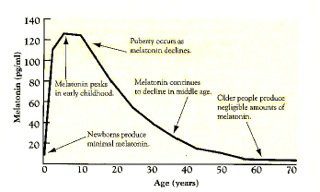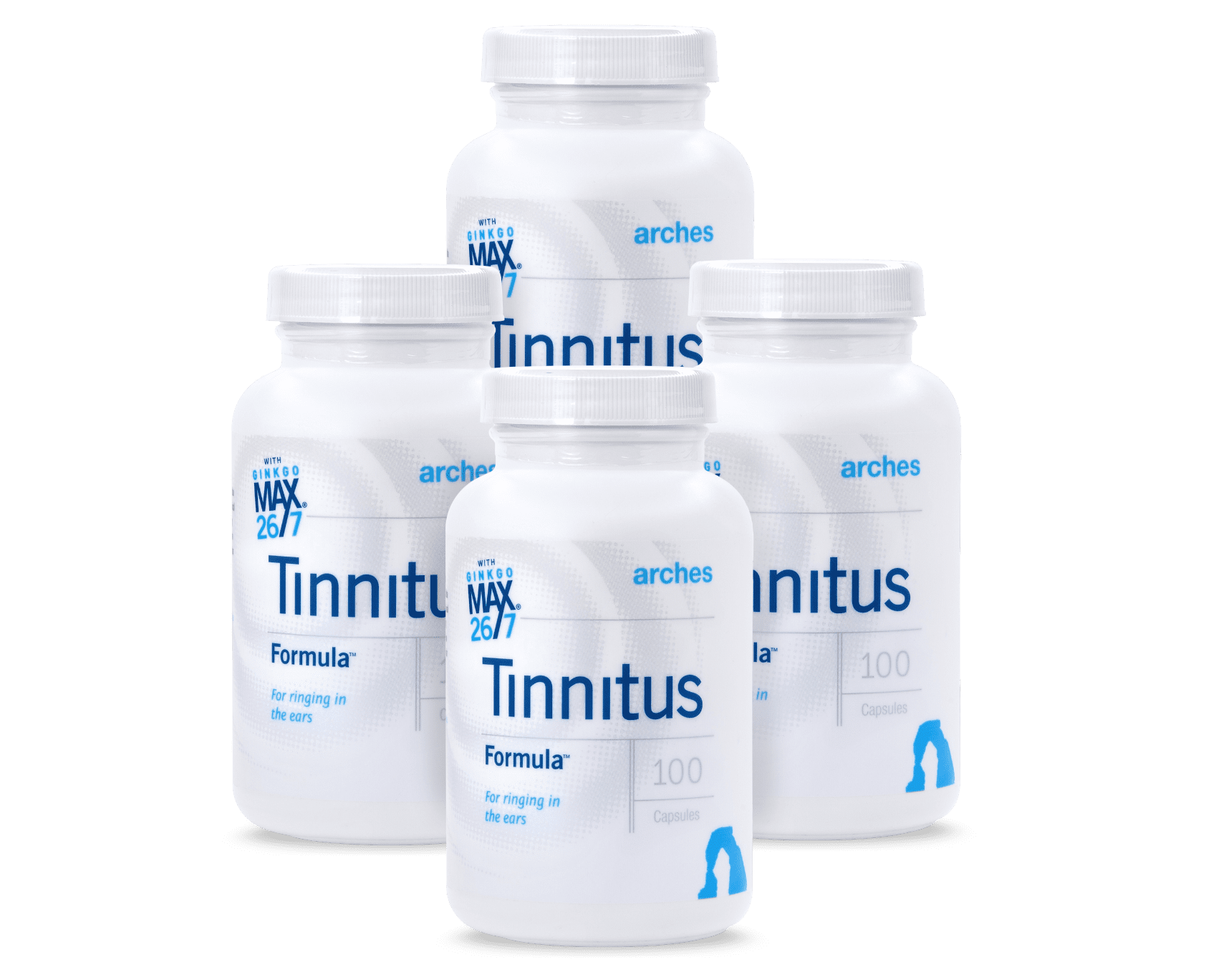By Barry Keate
Barry Keate, has lived with tinnitus over 40 years and has published 150+ research articles on numerous aspects of tinnitus. He is an expert on the condition and a well-known advocate for those with tinnitus.
Difficulty in getting to sleep is one of the primary problems for many people with tinnitus. The more bothersome the perception of tinnitus, the more difficult getting to sleep can become. Prescription sleeping medications present a host of problems, including addiction, and are not advised for long-term use. There is a need for a healthy, natural agent that can help people with tinnitus achieve a good night’s rest.
Melatonin, a hormone produced by the body and is found in the pineal gland of the brain and in the retina of the human eye. Melatonin secretion forms part of the system that regulates the sleep-wake cycle by chemically causing drowsiness and lowering body temperature.
Human melatonin production decreases as a person ages. (1) Production is also inhibited by light to the retina and promoted by darkness. It is principally blue light that inhibits melatonin. Until recent history, humans in temperate climates were exposed to a few hours of blue daylight in the winter; their fires at night gave predominantly yellow light. The incandescent light bulbs widely used in the twentieth century produced mostly yellow light with very little blue light. (2)
Television screens produce blue light, as do compact fluorescent lights, but the real offenders are smartphones and laptops, which emit much more blue light and are also closer to the user’s face. In June of 2012, the American Medical Association issued a policy recognizing “exposure to excessive light at night, including extended use of various electronic media, can disrupt sleep or exacerbate sleep disorders, especially in children and adolescents”. (3)
Researchers at Henry Ford Hospital in Detroit have found a significant association between the severity of perceived tinnitus symptoms and insomnia. They found that insomnia can worsen the functional and emotional toll of tinnitus symptoms and that tinnitus patients suffering from insomnia reported greater emotional distress.
Study co-author Kathleen Yaremchuck, MD explained, “Tinnitus involves cognitive, emotional, and psycho-physiological processes, which can result in an increase in a patient’s distress. Sleep complaints, including insomnia, in these patients may result in a decrease in their tolerance to tinnitus.” (4)
Those of us in our 40’s and older, especially if we suffer from tinnitus and insomnia, may benefit greatly from using supplemental melatonin. Clinical studies on melatonin and tinnitus show clearly that the hormone can help ensure a good night’s sleep and also reduce the worst of tinnitus symptoms for many people.

One of the most important studies on the use of melatonin to aid sleep and reduce tinnitus came from the Ear Research Foundation in Sarasota, FL. Researchers conducted a double-blind, placebo-controlled crossover trial on 30 patients with subjective tinnitus. They evaluated them using the Tinnitus Handicap Inventory (THI) questionnaire.
They found, “Among subjects reporting difficulty sleeping attributable to their tinnitus, 46.7% reported an overall improvement after melatonin…” They concluded, “Melatonin has been shown to be useful in the treatment of subjective tinnitus. Patients with high THI scores and/or difficulty sleeping are most likely to benefit from treatment with melatonin. In light of its minimal side effects, melatonin should be a part of the physician’s armamentarium in the treatment of tinnitus.” (5)
Another study followed 61 subjects for 60 days. Results showed, “A significantly greater decrease in tinnitus matching and Self Rated Tinnitus (SRT) scores from baseline was observed after treatment with melatonin relative to the effect observed with placebo.” They concluded, “Melatonin is associated with a statistically significant decrease in tinnitus intensity and improved sleep quality in patients with chronic tinnitus.” (6)
A very interesting study evaluated melatonin for preventing ototoxic damage to the ears from aminoglycoside antibiotics (e.g. gentamicin) and the cancer chemotherapy drug cisplatin. It should be noted that cisplatin is a powerful ototoxic medication that has the potential to cause tinnitus in most people who use it.
This study found, “Compared to a mixture of antioxidants which included tocopherol, ascorbate, glutathione and N-acetyl-cysteine, melatonin, also a documented antioxidant, was estimated to be up to 150 times more effective in limiting the cochlear side effects…of gentamicin, tobramycin and cisplatin.” (7)
Due to the very high antioxidant properties of melatonin, it is being studied for many medical uses. These studies are too numerous to go into detail here but the hormone has shown promise in the areas of autism, Alzheimer’s disease, anti-age medicine, type 2 diabetes, cancer, immune disorders, cardiovascular disease, depression, obesity, seasonal affective disorder (SAD), and many more.
We initiated a report on the safety and side effects of melatonin. The report was prepared for Arches by SafetyCall International, an FDA approved poison control and adverse event reporting facility for dietary supplements. The report was prepared by Richard Kingston, PharmD, Clinical Professor of Pharmacy and Stephen LeMaster, PharmD, Clinical Assistant Professor of Pharmacy, both at the University of Minnesota.
SafetyCall pored through many clinical studies, including those using high dosage melatonin, up to 20 mg daily, for adverse event reports. Their Commentary on Adverse Events states, “Overall, in the medical literature, adverse events are small in number and infrequently reported in relationship to the number of consumers who utilize such supplements. With melatonin, the most frequently reported adverse events include headaches, daytime drowsiness, dizziness, self-limiting skin reactions/rashes and non-specific stomach, digestive tract complaints (nausea, vomiting, diarrhea, etc) and other adverse events of a self-limiting and non-serious nature.” In summary they stated, “we could find no data indicating that long-term use has been associated with adverse consequences.”
References:
1 – Sack RL, Lewy AJ, Erb DL, et al. “Human melatonin production decreases with age”. J. Pineal Res. 1986, 3(4): 379-88.
2 – Cornell University, Light Source Spectra (http://www.graphics.cornell.edu/online/measurements/source-spectra/index.html)
3 – http://articles.chicagotribune.com/2012-07-08/news/ct-met-night-light-sleep-20120708_blue-light-bright-light-steven-lockley.
4 – Rattue G. “Tinnitus Linked to Insomnia.” Medical News Today. MediLexicon, Intl., 24 Apr. 2012. Web.
5 – Rosenberg SI, Silverstein H, Rowan PT, Olds MJ. “Effect of Melatonin on Tinnitus.” Laryngoscope. 1998 Mar;108(3):305-10.
6 – Hurtuk A, Dome C, et al. “Melatonin: can it stop the ringing?” Ann Otol Rhinol Laryngol. 2011 Jul; 120(7):433-40.
7 – Reiter RJ, Tan DX, Korkmaz A, Fuentes-Broto L. “Drug-mediated ototoxicity and tinnitus: alleviation with melatonin.” J Physiol Pharmacol. 2011 Apr;62(2): 151-7.
Get Free Shipping!
Order now and get free shipping on either the Tinnitus Starter Kit or Combo Pack. Try the doctor recommended products with clinically proven ingredients for tinnitus. No coupon code required.

